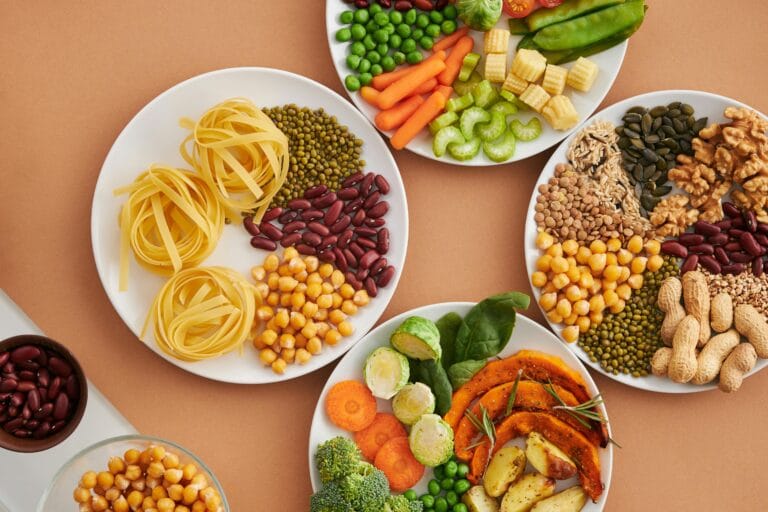
Want to Live Healthy? Know the Types of Vitamins and Their Benefits Now!

Vitamins are essential micronutrients required by the body that cannot be synthesized endogenously and must be obtained through the diet. Vitamins are classified into water-soluble and fat-soluble vitamins. Water-soluble vitamins include vitamin C and the B-complex vitamins, while fat-soluble vitamins include vitamins A, D, E, and K.
Vitamin A and Its Functions
Vitamin A is a fat-soluble vitamin that can be obtained from egg yolks, milk, liver, cheese, and butter, as well as from plant sources such as green leafy vegetables, carrots, pumpkins, yellow corn, mangoes, and papayas. Vitamin A plays a role in the differentiation and proliferation of epithelial cells in the eyes, salivary glands, and genitourinary tract. In its retinal form, vitamin A contributes to the formation of rhodopsin, a pigment in the retina that aids vision, particularly in low-light conditions. Additionally, vitamin A stimulates T lymphocyte differentiation and B lymphocyte activation in response to immune challenges.
The Role of Vitamin D in the Body
Vitamin D is a fat-soluble vitamin that exists in two forms: vitamin D2 and vitamin D3. Vitamin D2 can be obtained from salmon, tuna, and mackerel, while vitamin D3 can be synthesized in the skin upon exposure to sunlight. In the body, vitamin D functions to increase plasma calcium and phosphate levels, which are crucial for bone mineralization. Moreover, vitamin D activates osteoclasts, which are responsible for bone resorption, thereby maintaining the balance between bone formation and resorption.

Benefits of Vitamin E
Vitamin E is a fat-soluble vitamin, with its dominant form being ⍺-tocopherol, which can be obtained from vegetable oils, seeds, nuts, and whole grains. Vitamin E acts as an antioxidant, preventing the formation of reactive compounds during lipid oxidation by protecting polyunsaturated fatty acids in cell membranes from oxidative damage. This helps maintain membrane flexibility and stability.
Vitamin K and Its Role in Blood Clotting
Another fat-soluble vitamin, vitamin K, exists in two main forms: vitamin K1 and vitamin K2. Vitamin K1 is found in green leafy vegetables, cabbage, and cauliflower, as well as in smaller amounts in fish, meat, and certain fruits. Meanwhile, vitamin K2 is synthesized by intestinal microflora. In the body, vitamin K is essential for activating specific clotting factors in the liver, which play a critical role in the blood coagulation process.

B-Complex Vitamins and Vitamin C
The B-complex vitamins are water-soluble vitamins that function as cofactors in biochemical reactions within the body. They play a vital role in growth and development, skin health, nerve and heart function, and red blood cell formation. There are nine types of B-complex vitamins required by the body: thiamine (B1), riboflavin (B2), niacin (B3), pantothenic acid (B5), pyridoxine (B6), biotin (B7), folate (B9), and cobalamin (B12). Another water-soluble vitamin, vitamin C, is essential for collagen synthesis, wound healing, bone formation, enhancing the immune system, iron absorption, strengthening blood vessels, and acting as an antioxidant.
Medicine Testing at IML Research
Laboratory testing is essential before they are marketed to ensure the safety and effectiveness of vitamin-containing medicine. Trust IML Research for accurate and reliable medicine testing results.
Stay tuned for the next article!
References:
Herschel Conaway, H., Henning, P., & Lerner, U. H. (2013). Vitamin a metabolism, action, and role in skeletal homeostasis. In Endocrine Reviews (Vol. 34, Issue 6). https://doi.org/10.1210/er.2012-1071.
Lykstad, J., & Sharma, S. (2019). Biochemistry, Water Soluble Vitamins. In StatPearls.
Reddy, P., & Jialal, I. (2021). Biochemistry, Fat Soluble Vitamins. StatPearls.
Shahidi, F., & De Camargo, A. C. (2016). Tocopherols and tocotrienols in common and emerging dietary sources: Occurrence, applications, and health benefits. In International Journal of Molecular Sciences (Vol. 17, Issue 10). https://doi.org/10.3390/ijms17101745.



